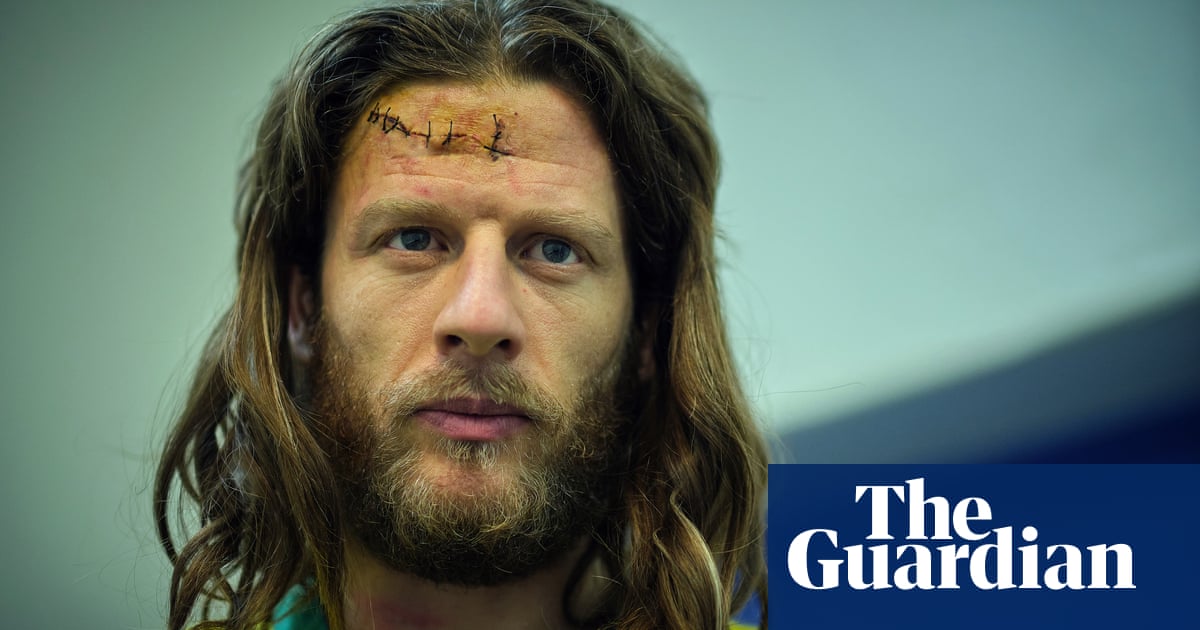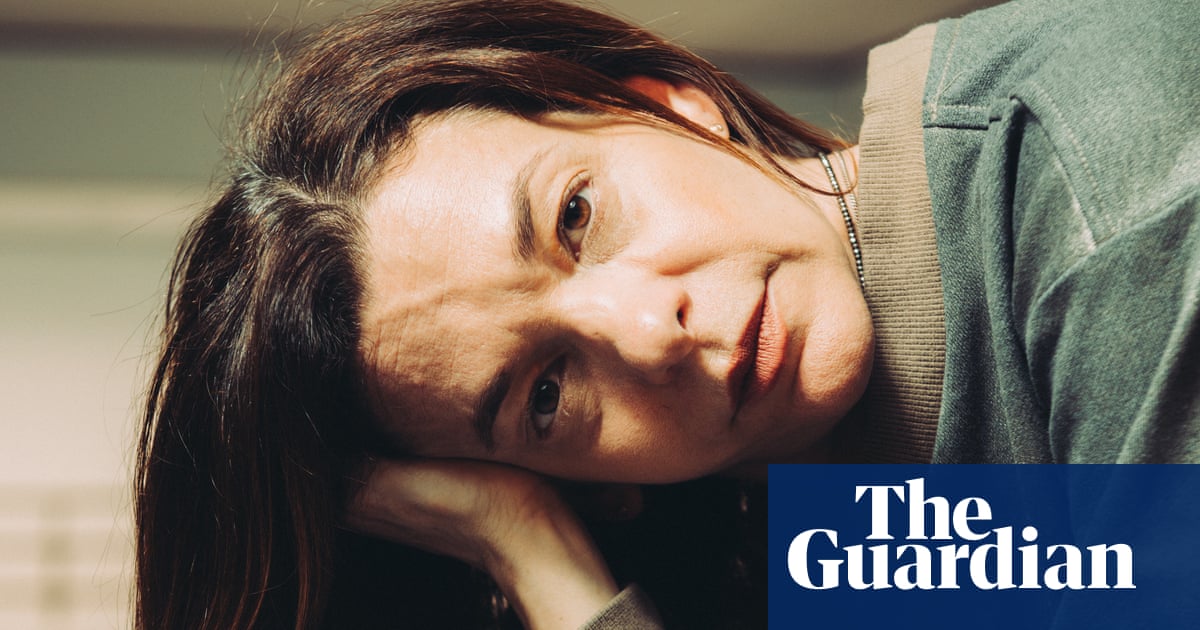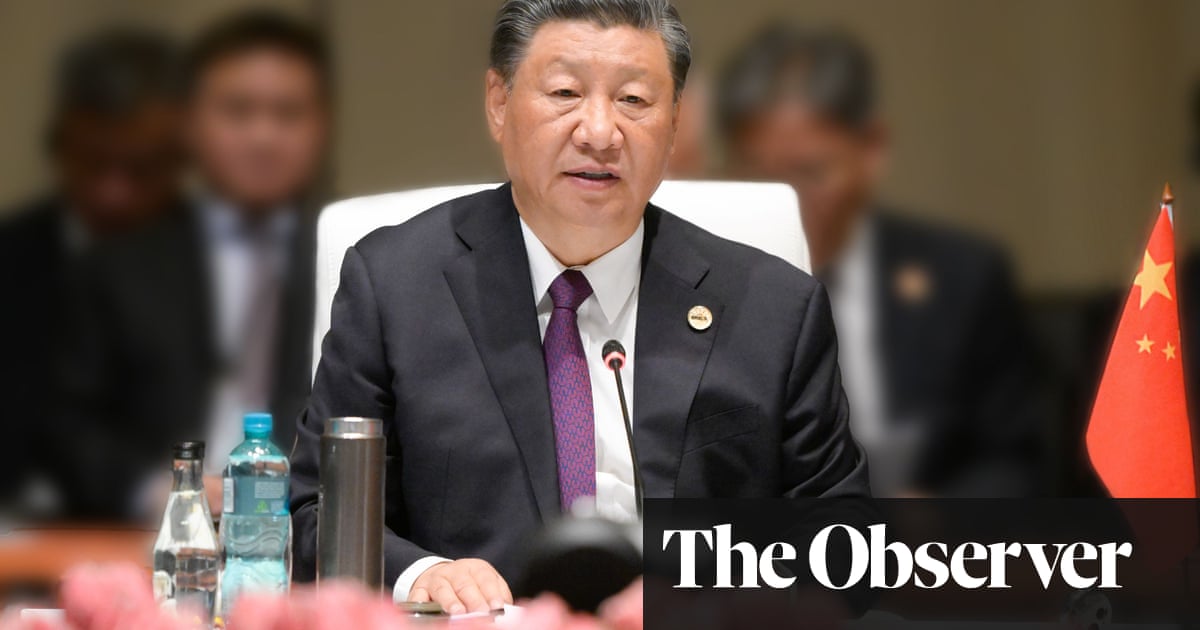
If the Chinese film industry needs a stock foreign villain, I’m their first port of call. I was a Gatling gun-wielding mercenary in 2015’s Wolf Warrior, one of the first of the new wave of military blockbusters, and a hitman in Jackie Chan’s Kung Fu Yoga in 2017, among many others. And I recently played an American colonel in the Korean war in The Battle at Lake Changjin, the most expensive and successful Chinese film ever: it made $909m (£675m) last year.
It’s surreal – coming from humble beginnings in Huntingdon, Cambridgeshire – to find myself in the middle of a massive field in Hubei province filming the likes of The Battle at Lake Changjin. You’d think you were in a real-life warzone – there were hundreds of tanks supplied by the government. I grew up watching Jackie Chan, Bruce Lee and Jet Li movies, which kickstarted my passion for China. I originally came here to study martial arts in 2004. Then I came back 10 years later to work as a financial consultant, which I didn’t really enjoy.
I had had a few roles in small local films, but a chance meeting with Wu Jing, who’s the biggest star in China now, changed everything. I was at Beijing’s Public Security Bureau, renewing my visa, when he rocked up the escalator. He looked like a superstar with his sunglasses and leather jacket, collar turned up. We talked, and when he realised I had studied acting, he said he needed a big guy – I’m 6’6” – for his new film.
I went into his office to meet him again and read some lines, but it was a disaster. The audition was in Chinese – and at the time, my language skills weren’t as good. But he said: “Kevin, there’s something about you that I really like. I want to give you an opportunity.” A week later, I got a call from his assistant saying they wanted to offer me the role of Crazy Bull in Wolf Warrior. It was a big success and opened up the right doors. It was very fortunate for me that I worked on one of the first big Chinese action blockbusters.
There’s an unwritten rule about foreigners not playing lead roles here – but then how many Asian leads do you see in Hollywood films? Chinese audiences prefer to see Chinese leads. One can’t complain about that because we’re in their backyard. But I’m happy to play a villain, absolutely, even if I get my ass kicked by someone half my size sometimes. A bit humiliating maybe!
I’m not the first westerner to specialise in playing foreigners here. The American actor Jonathan Kos-Read, who became known in China as Cao Cao, started his career a few years before me when there weren’t any foreign actors here. But he did a lot of TV shows, and there weren’t many film roles of any kind for foreigners at the time. Then the floodgates opened. There’s still only a small bunch of decent professional foreign actors here – probably less than 20 that I would personally recommend. But I’ve never had too much competition because of my height and the niche I’ve carved out.
As a foreigner, you have to tread carefully in China, with it being very patriotic. They have their history with what certain countries have done to China, and the British playing their part. So I’ve got to be careful about how I’m perceived. In Changjjn and Sharpshooter, a movie I worked on recently with Zhang Yimou, I’m essentially killing Chinese soldiers. So I can’t be too excited when I post stuff to my followers on TikTok/Douyin. I have to show a lot of humility and respect to the fallen Chinese soldiers. I try and be an ambassador for Britain here – if people ask, I never refuse a photograph.
If there’s one thing I could change about the Chinese industry, it would be to open up the doors a little bit more to being creative. Scripts go through so much official scrutiny before they can even get produced: out of thousands that go through the vetting process, only around 5% make it through. As a director or writer, you’re very limited in terms of the kinds of narrative you can make. Also the standard of acting here is not as high as in the west, where there is more formal training. If we had the opportunity to work with more kinds of narrative, the acting skill set would improve – and Chinese blockbusters would compete more internationally with Hollywood.
It’s a little unfortunate that my mother doesn’t get to see a lot of the movies I’m in – though maybe Sharpshooter, which could even surpass Changjin, will make it over. Will I stay here long term? We often speak about this among the expat actors. I would like to be tested more. So I want to push myself and work in the west, where I can be surrounded by more established actors.
It might not be easy: I met up with an agent in the UK a few years back, and he wasn’t interested in any of the credits that I’ve got under my belt in China. He said: “I’ll be frank with you, I really want to hear your Jackie Chan stories.” He said I would probably have to start from scratch working on shows like EastEnders. But I will always leave the doors open here in China – I’m very fortunate and grateful to be living here. It’s given me success. I wish people would be more open-minded and give the country a shot. It’s a great place to be.












